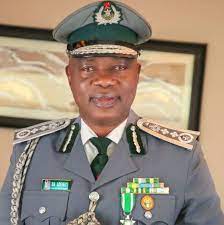The conception and birth of the Council for the Regulation of Freight Forwarding in Nigeria (CRFFN) has remained contentious since its bill was enacted. Different interests have contested for the privileged of being referred to as the prime mover of CRFFN.
We can clearly recall that the ‘struggle for this has always being between the Association of Nigerian Licensed Customs Agents (ANLCA), the National Association of Government Approved Freight Forwarders (NAGAFF). And lately, the Institute of Freight Forwarding of Nigeria (IFFN) through its national president, Dr Zebulon Ikokide has also shed some ‘light’. He claimed in a recent interview that the institute’s desire to get a legal backing to professionalize freight forwarding in Nigeria gave birth to the CRFFN.
But, in all of these, none of the ‘gladiators’ has ever contested the fact that apart from their institutions and bodies, there are some individuals who also played very critical roles in the process leading to the birth of CRFFN.
Without equivocation and considering the suspicion which led to its birth, the Council has undoubtedly fought many battles since its creation a little over two years ago; it has had to fight to gain relevance, it has also fought to assert itself as the rallying point for all freight forwarding interests in Nigeria. In the last two years, the Council has also fought to have the financial muscle to execute its mandate. It has also had to wrestle the associations and some individuals to submission a as part of its battle for assertion.
Its pioneer governing council spent ample time brokering peace between it and some individuals and between it and some institutions. One of this ‘wars’ was the one it fought with the former national president, National Council of Managing Director of Licensed Customs Agents, Mr Lucky Amiwero; the fight is still before the courts.
Mr Amiwero had dragged the CRFFN, the minister of transport as well as the Nigerian Shippers’ Council to court over allegations of irregularities in the conduct of elections into the governing council in 2008.
The court case significantly slowed down the activities of the CRFFN until a new minister in person of Alhaji Ibrahim Isa Bio was appointed.
Another case that is still in court is the one between CRFFN and NAGAFF over interpretation of the Act which established the Council.
It is in consideration of all these that we commend the pioneer governing council under the chairmanship of Mr Tony Nwabunike and the administration under the registrar, Sir Mike Jukwe for putting CRFFN on a sound footing.
It is noteworthy that at the recent extra–ordinary general meeting of the governing council in Abuja, Nwabunike eulogized the new chairman, Alhaji Hakeem Olanrewaju for his unalloyed support to him (Nwabunike) when he (Olanrewaju) was the vice- chairman.
The new governing council which also parades some old members (including the immediate past chairman) has a lot of work on its hands.
We are quite impressed with the credentials of the new chairman and we also take note of the encomiums that were showered on him by virtually all the members of council shortly after the elections. It is also instructive that he was elected unopposed.
This overwhelming confidence also means that Alhaji Hakeem Olanrewaju can not afford to fail. His experience as an international freight forwarder with vast experiences in global logistics will come to play here. It is on record that he was very instrumental to Nigeria’s admission to the International Federation of Freight Forwarders (FIATA) and he is also the brain behind the visit and the subsequence membership of Nigeria in the World Cargo Alliance family.
The new CRFFN government council will do well to ignore side comments and malicious litigations which are diversionary in nature. A lot depends on the experience, dexterity and integrity of the new chairman, the loyalty of the vice chairman and other members of the governing council.
We take particular note of the affirmation by the new chairman that he will devote ample time and resources of the Council to capacity building, training and retraining of members of freight forwarders. This is important because of the shocking discovery that a greater proportion of the young-generation freight forwarders who applied for registration only have the secondary school certificate with no formal training in freight forwarding.
















Discussion about this post